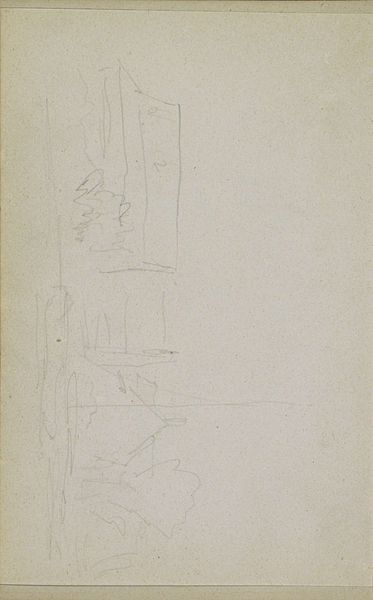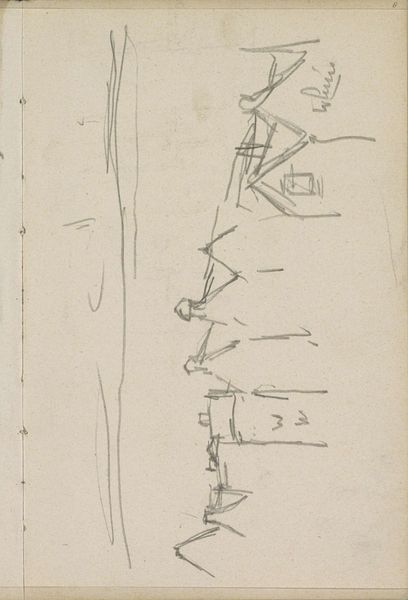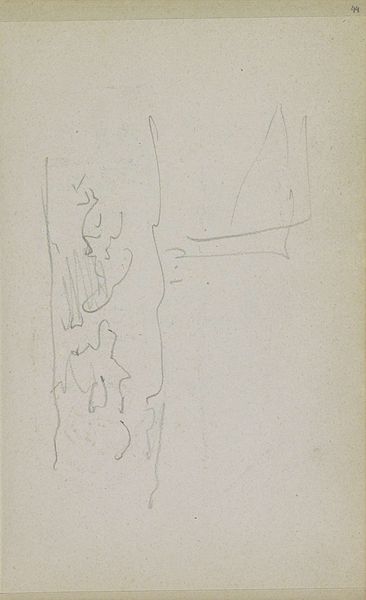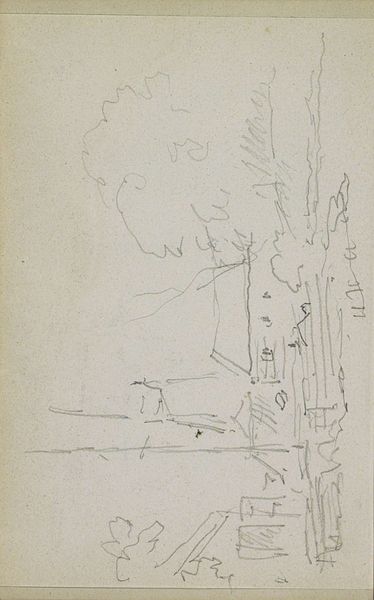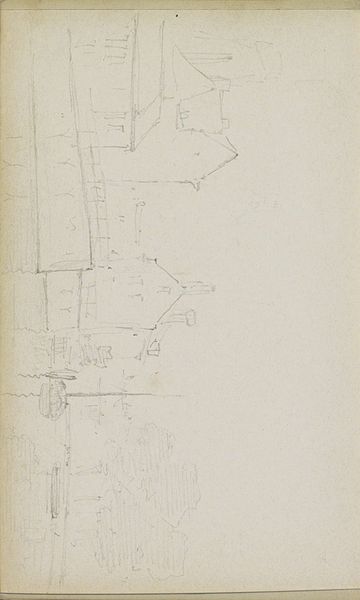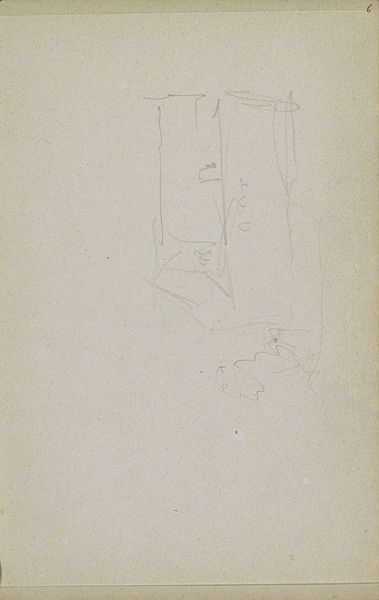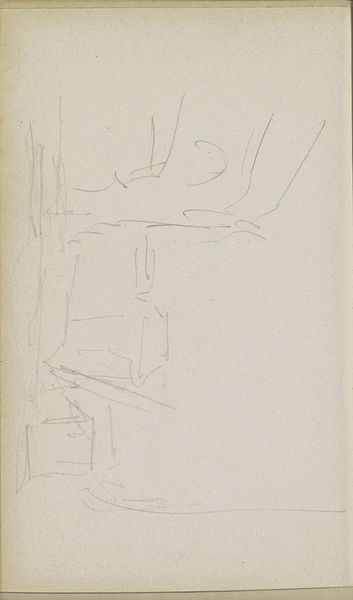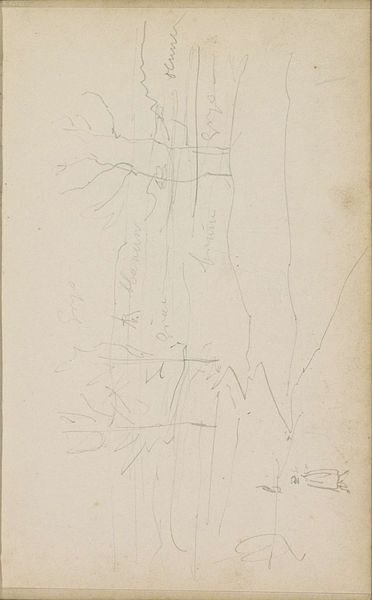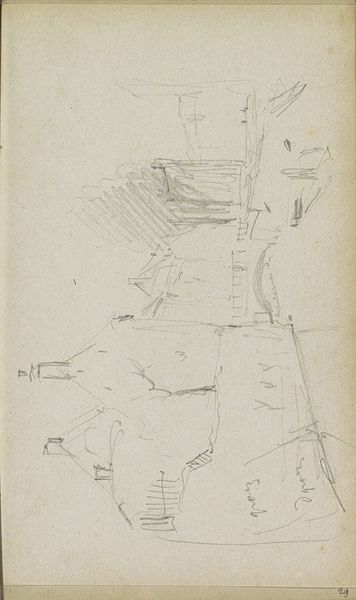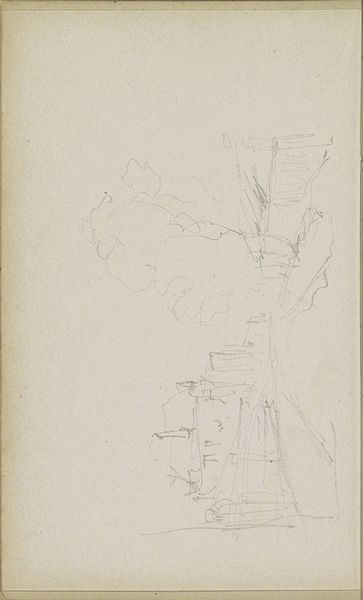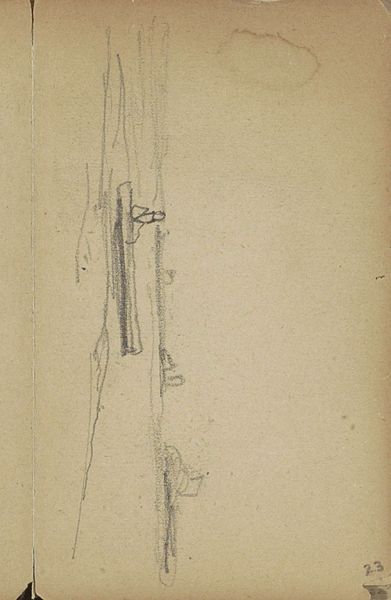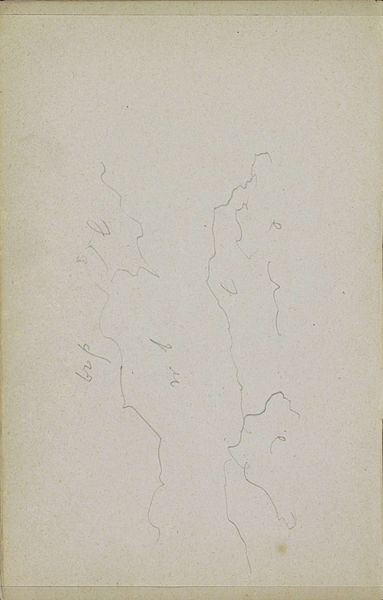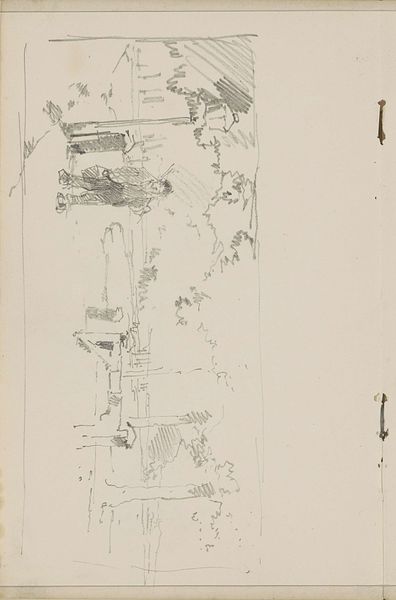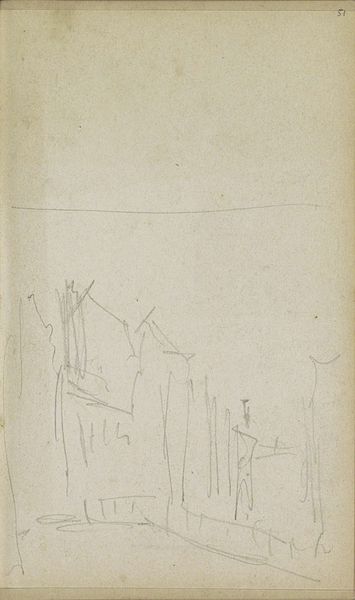
drawing, paper, pencil
#
drawing
#
landscape
#
paper
#
pencil
#
realism
Copyright: Rijks Museum: Open Domain
Curator: Looking at this delicate sketch, I'm struck by the quiet simplicity of it. There's an almost ethereal quality to the scene. Editor: This is Adrianus Eversen's "Molen aan het water," executed sometime between 1828 and 1897. Created with pencil on paper, it’s a beautiful example of realism, albeit one captured in a very raw state. Eversen, though perhaps not as politically charged as some artists of his time, engaged deeply with representing the societal impacts of industrial progress and landscape in a changing nation. Curator: I see the bones of something... a blueprint for a memory, perhaps? Water, and a windmill... a very conventional image of Dutch life. I suppose windmills are almost an emblem of resistance, engineering reshaping the environment... is this what Eversen touches on? Editor: The windmill carries an undeniable symbolic weight in Dutch culture, and more widely still, signifying prosperity and, as you note, ingenious human intervention into natural order. The historical context is important; with the rise of industrialization, windmills began losing their economic value, which impacts their cultural perception too, of course. Their continued visual presence in Eversen’s landscapes represents a longing for older cultural traditions against increasingly modernized life. Curator: It seems like the symbols work even beyond the artist’s explicit intentions. Take the windmill for granted and this quickly appears as little more than some crude structure overlooking still water; know of the history behind it, and the meaning quickly turns hopeful. Editor: Exactly. His choice of pencil and paper is itself a meaningful aesthetic statement. It feels raw, almost documentary, a feeling echoed by the somewhat faded effect. The artwork offers not just an aesthetic experience, but an opening to consider these historical forces. Curator: It gives the feeling of history, of a fleeting moment made somehow timeless on this fragile page. A thought provoking image, wouldn't you agree? Editor: Indubitably. Seeing the simple tools and natural imagery truly provokes a desire to look backward and see the past for what it was.
Comments
No comments
Be the first to comment and join the conversation on the ultimate creative platform.
